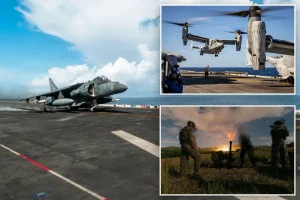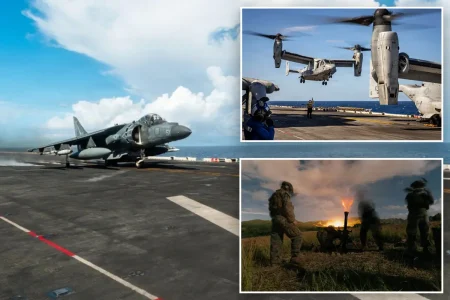The downing of a passenger jet, allegedly by Russian air defenses, has sparked a diplomatic firestorm between Azerbaijan and Russia, with Azerbaijani President Ilham Aliyev publicly criticizing Moscow’s response to the incident. The incident, which resulted in the loss of innocent lives, has exposed the underlying tensions and complexities in the relationship between the two nations, highlighting the delicate geopolitical balance in the region and raising concerns about the potential for escalation. Azerbaijan’s strong reaction underlines the seriousness with which it views the event, signaling a potential shift in the dynamics of its relationship with Russia. The incident also raises broader questions about accountability in conflict zones and the imperative for transparent investigations into such events.
The core of the dispute lies in the conflicting narratives surrounding the cause of the crash. Azerbaijan asserts, based on preliminary investigations, that the aircraft was most likely struck by a Russian surface-to-air missile. This claim, if substantiated, places the responsibility squarely on Russia and demands a clear explanation, apology, and appropriate reparations. However, Russia’s response has been perceived by Azerbaijan as inadequate and dismissive, further fueling the diplomatic row. Moscow has yet to acknowledge responsibility and has instead called for a thorough investigation, emphasizing the need to avoid premature conclusions. This perceived hesitation to accept accountability has been interpreted by Baku as an attempt to evade responsibility and has strained the already sensitive relationship between the two countries.
Beyond the immediate incident, the crash underscores the broader geopolitical context in which it occurred. The region, marked by historical conflicts and complex power dynamics, has been a theater for proxy wars and international rivalries. Russia’s significant military presence in the area, while often viewed as a stabilizing force, has also been a source of concern for neighboring countries wary of its influence. Azerbaijan, while maintaining relatively close ties with Moscow, has also sought to diversify its international partnerships and maintain a degree of independence in its foreign policy. This balancing act has become increasingly challenging in the wake of the plane crash, forcing Baku to navigate the complex web of regional alliances and rivalries with renewed caution.
The incident also highlights the precarious nature of air travel in conflict zones and the urgent need for enhanced safety protocols. The downing of a civilian aircraft raises serious concerns about the adequacy of existing safeguards and the potential for similar incidents to occur in the future. The international community has a responsibility to ensure that all necessary measures are taken to protect civilian airliners from becoming collateral damage in military operations. This includes establishing clear communication channels between military forces operating in conflict zones, enhancing air traffic control procedures, and implementing stricter rules of engagement to minimize the risk of accidental targeting of civilian aircraft.
The Azerbaijani criticism of Russia’s response has further ramifications for the regional security architecture. The incident could potentially embolden other countries in the region to reassess their relationships with Russia and seek closer ties with alternative partners. This could lead to a realignment of alliances and potentially increase instability in an already volatile region. Moreover, the incident underscores the importance of international cooperation in investigating such incidents and holding responsible parties accountable. The international community must play a proactive role in ensuring a transparent and impartial investigation into the crash and in working towards preventing similar incidents from occurring in the future.
Furthermore, the incident throws into sharp relief the challenges of managing complex relationships in a world characterized by competing interests and shifting alliances. Azerbaijan’s criticism of Russia, while stemming from a specific incident, reflects broader concerns about power dynamics and the need to maintain national sovereignty. The incident serves as a stark reminder of the delicate balance that nations must strike between maintaining strategic partnerships and safeguarding their own interests. The fallout from this incident is likely to reverberate through the region for some time, impacting political calculations and influencing the future trajectory of relations between Azerbaijan and Russia, as well as between other regional actors. The incident also carries significant implications for international law and the norms governing military operations in conflict zones, reinforcing the need for clear accountability mechanisms and strict adherence to international humanitarian law.










